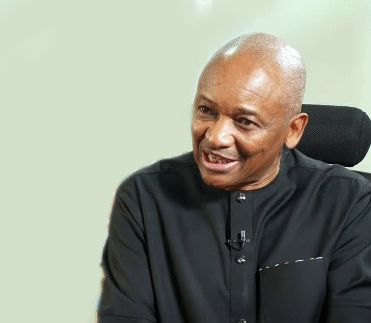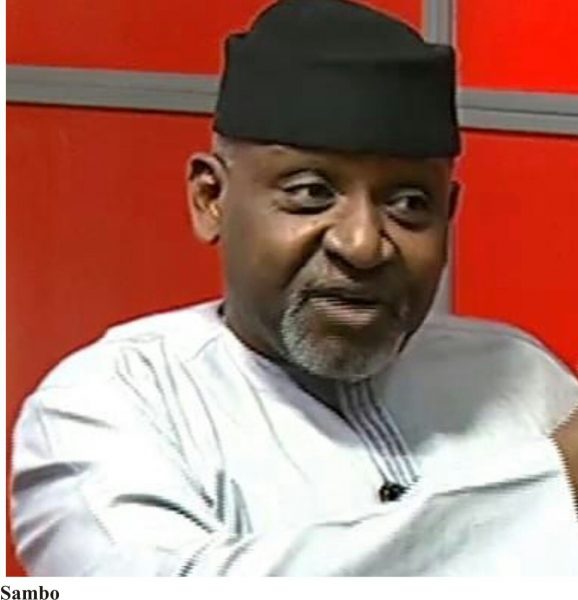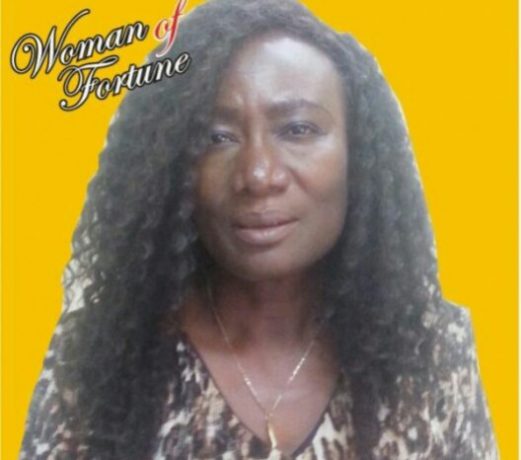2023 Outlook : Maritime Industry Is In For A Tough Ride- Capt. Baiyee

Captain Suleiman Baiyee is a Fulani Mariner trained by Shell as a navigating officer through a scholarship abroad on Marine Engineering and Navigation. After scaling up to become a Sea Captain, acquiring other academic qualifications and worked overseas for more than a decade, Captain Suleiman Baiyee has voluntarily extended his wealth of knowledge and expertise to the Nigerian maritime, oil and gas sector having served in Starzs Investments and other industry firms.
At the recent Chartered Institute of Logistics and Transport(CILT)Nigeria national conference, the Captain was scheduled to make a speech on ‘De-carbonization’ but just like the dawn of the new era, he canvassed for Nigeria to explore Liquefied Natural Gas rather than concern herself de-carbonization shenanigans when the nation emission footprints is less than 1 per cent.
In this interview, Captain Suleiman Baiyee expresses why he is passionate that Nigeria should begin to use LNG as the alternative energy to petrol.
In your speech during the concluded Chartered Institute of Logistics and Transport Nigeria (CILT)Nigeria Conference, you vehemently advised that Nigeria should focus on Liquefied Natural Gas (LNG) rather than other sources of renewable energy because the country is not equipped for such transformation. What are these opportunities in LNG that Nigeria should explore?
We need to take a step back in why I think we should go into Liquefied Natural Gas. Let’s take an example from India; they produce coal and depend on it a lot! So, in 2015 during the Paris Climate Summit, they wanted India to implement and sign the Target for Coal but India argued that by signing the agreement, it would have negative impacts on their development. Thus, India didn’t sign it and as a result, India was given an extension to 2070 rather than 2050 to face out coal reliance for energy generation.
The point I am making with this analogy is that I want people to understand clearly that we should focus on Nigeria first; before we adopt what would help us move forward as the international community wants. At the moment, we should focus on ourselves. For example, we produce less than 1% of Co2 and even we don’t produce at all, it would have little impact on the overall Co2 production in the world but we are suffering from it. Therefore, as for us reducing our Co2 level; it’s not working for us and we do not have significant impact on the global Co2, so why should we focus on that? During the conference everybody was talking about it. For Nigeria, Co2 is not an issue but the gasses have impact on us, sulphurdioxide, nitrodioxide those are things we should look at. What are we doing to harm ourselves environmentally, locally? We should deal with those.
Today, what we do is that we import all our oil, it is expensive but LNG is at our doorstep. Another thing about LNG is that it does not require significant processing for you to be able to use it. It may require a sophisticated infrastructure required but it is easier to implement than any other type of alternative energy. One of the alternative energy on discourse they are talking about its hydrogen, how can we produce it? It is very difficult to do. Do you know what it takes to produce hydrogen? You draw it either from water or you generate it from air and you use various electronics to get it out.
The alternative energy is LNG, even though it’s not all that clean; it releases some harmful gasses but the technology exist for us to be able to reduce that. So LNG is here, it’s a local resource, we have it in abundance. People are talking about electricity and solar panel. Do you know that each pallet of solar energy requires 1,000, 000,000 dollars to invest? But if I invest that sum into LNG, I would get more 10 mega watts of power from LNG.
In Africa, we can invest and become the pioneers of the use of LNG, so we would be able to support the rest of the African countries. We have an opportunity where we can be the pioneers and leaders where the western depends on us but we are not taking the opportunities. When you use LNG for gas, we can fashion dual fuel engines and it easy to adapt existing engines to become dual fuel, our cars can be adopted with less money than for us to make electric cars. I am not saying that there are no challenges with LNG but these are challenges we can overcome easily. So why are we going to give ourselves that burden because we want to meet the requirements of the West; the people who caused the problem in the first place? The tempo of the Chartered Institute of Logistics and Transport Nigeria conference that day was not in our interest.
Based on data, Nigeria contributes less than 1% carbon footprints yet the International Maritime Organisation, United Nations and Other International Organisations collectively champion that developing nations should transit to renewable energy knowing full well that such nations are not in the same energy transition with them and Nigeria does not even produce a significant quota of Co2 emissions. Do you think the West is misleading the global community?
No, I would not use the word misleading; the West is selfish they do what is good for them. We need to learn to be selfish. We follow rather than us looking internally for us to do what is good for us. We follow what they recommend because our people were followers. Do you know that the government has earmarked 10% of our LNG capacity for local consumption? I am a field person, I am out there, I know the opportunities that exist
Today, there are only two plants for hydrogen and they are in Holland and Dubai when would it get to us? We would be here and they would tell us don’t be doing anything? When would it get to our turn? It is not just LNG, it’s our approach. We have to become selfish and think about ourselves. Nigeria is a leader in Africa. We have the resource to lead on Climate Change but we are not doing it. If Nigeria was to go around and convince most of the African countries to say – ‘See this LNG we would enhance it for Africa, lets go and say this is Africa agenda. We are going to be using LNG, we are developing, don’t stifle our development’. Africa can go as a unit. Everything they are asking us to do is to stifle our development and we are accepting it. The agenda for development should be our agenda not giving us their agenda.
We want to seem to be conforming to the international standards. We want acceptance yet our people are suffering. The West is always selfish; do you think the West would help us fix our refineries? They won’t because immediately we start producing our own diesel and petrol, we would stop importing from them and they won’t make money from it, so they make sure we become parasites. Everything they do is for us to become parasites of the West. We stop using coal fired stations because of the West and Nigeria has coal more coal reserve than we have in the oil but it is sitting down there. We are not thinking ourselves. Due to the Russian and Ukraine war a lot of developed nations are in need for coal but we are not in a position for supplies. . I am worried about my country, I am pro my country; if that makes me anti-developed country; so be it.
In 2021, President Mohammad Buhari Launched the ‘Decade for Gas,” can you evaluate if that declaration is viable to boost Nigerian LNG production and so far, what has the government achieved for the gas industry ?
The problem in this country is that the government has given us the foundation and it is now left for us to leverage on that foundation. The government has got everything to be giving us gas at a very good price. Do you now expect government to go and start investing for people to use gas? It should be Nigerian investors that should be able to do that. Buhari has given us the foundation but what are we going to do as an industry for it. CILT, what are they doing about it, what are transporters doing about it? There are companies in Nigeria that are buying vessels that have dual engines so they can benefit in gas others take gas from Bonny to up north, so people are using gas. Why didn’t CILT bring all that companies to show how they use gas? What I am saying is that there are organizations that should spearhead this, and do what they are supposed to do. We are not talking about a technology that is in the future and our people have started using it. Let’s build infrastructure. The Nigerian Content Development and Monitoring Board (NCDMB) have money for capacity development,people can go in there and talk to them to give money in order to develop business. The problem we have is somewhere along the line, someone would sit in there and the money won’t be used to accomplish the target. The main drive for energy transition in Nigeria is gas. LNG is the way forward for Nigeria. When you burn LNG you do not get Co2, you can get some other gasses that you can control and the technology exists now.
The responsibility is for the government through its framework and agencies to make the funds available like NCDMB could give loans for marine industry for capacity development. That’s how government comes in by making cheap funds available not free. We keep talking about petrol cost and petrol subsidy. If we started using gas, we would get fewer reserve subsidies at a reasonable price. Like everything else, we have to grow the infrastructure so it becomes accessible to everybody. At the moment it is the government that should assist by laying most of the infrastructure and then people can invest in smaller ones.
What are the needed infrastructures for LNG production in Nigeria and at the moment, the sum of 20.51 trillion Naira has been appropriated for 2023. What percentage of this sum do you think is enough to cater for LNG production in the country?
There are two things about LNG; for you to convert it ; you have to liquidify it using refrigeration , to keep at the temperature it stays liquid and when you want to use it, you re-gasify it to become gas. You liquidify it, transport it and store it if you wish and then re-gasify it for you to use it. The infrastructure is to set up the liquidifcation, re-gasfication and storage. These are three things:The infrastructure you need to put in place. For example , in a petrol station , if you put gas in storage refrigeration system as it’s in liquid form, by time you re-gasify it; it gives you so much gas . The storage capacity used in petrol stations to store petrol, if you were to store LNG, it would give gas to service 20 times more people because the ratio between liquid and gas is significant
As for percentage, I cannot give you the figure but I was involved in a project that needed 200 million Dollars to be able to distribute LNG for power generation in the country. That is for the infrastructure alone but what is that sum of money in context in what we are trying to do; it’s not a lot of money. Remember how much the past administrations spent in trying to give money to this country, they were talking about billions of Dollars; if they used that money to invested in LNG we would have plants all over the country that would give us power.
Even if the government were to channel what they budget for power and it was used properly on the right things like, LNG and gas power stations; that money would be enough. I am not saying they should do anything special, what we have, let’s use it well.
Appraise the Nigerian Maritime Sector, bearing in mind the 2023 outlook for the sector. How is next year going to be in the industry in the midst of decline in importation, ban of goods, Russia/Ukraine war?
The Nigerian Maritime industry is in for a very rough ride. Because of Covid, no new vessels were built, it means that there was a lag in capacity then in Nigeria we are low in this sphere so, we don’t pay the right rate. Today, we have logistics clashes in the world. We use to be able to get a container from the USA to Nigeria for 4,000 Dollars; today, it is 8,000 Dollars.
In the Maritime sector, apart from the vessels that satisfy the requirements of the oil and gas sector, we have no maritime industry, we have no Nigerian ship that brings cargo in here . So we are completely dependent on what they do. If they increase their prices, we cannot reduce it because we have no local capacity to do anything. There is a shortage of vessel in Nigeria and the oil and gas industry is suffering. We cannot afford to keep up with the West, we have a bad time coming. It is going to get tougher.
What is your opinion on the lack of statistics by the National Bureau of Statistics for planning the maritime sector which is submerged under transportation? Is this a concern to you?
In this country, the maritime sector is 20 times or more bigger than the aviation sector but we have a ministry of aviation but we don’t have a ministry for maritime it is stuck under transportation. It means the government does not see marine as a priority, otherwise they would be ministry of maritime affairs. The Nigerian Maritime Administration and Safety Agency (NIMASA) has never had someone from the marine industry to head that organization in all its existence. Even the Chartered Institute of Logistics and Transport(CILT) never acknowledges the maritime industry but guess what! The marine transport is the biggest transportation in the world. Till today, if ship do not come into this country the logistics and transport industry will collapse. 90% of what we import into this country comes by sea. Until this country wakes up, to the potential of our blue economy, which is the maritime industry we would still be in the dark rooms. Apart from the Nigerian Liquefied Natural Gas (NLNG) where we own two assets, where they transport LNG in our own vessels. The crude oil produced is transported by foreign vessels and the Nigerian National Petroleum Corporation (NNPC) set up companies for the transportation of our oil, gas yet none of them is functioning and they all have a budget every year. We need to ask them what they use it for because they do not transport.
Until they set up a Ministry of Maritime Affairs and put someone who knows about maritime issues as head of NIMASA; as far as I am concerned they have nothing to contribute. We just have to think about ourselves. I was trained by Shell, this country was good to me and I am trying to give back to the country, and they are a number of people like that in the country. We are ready to sacrifice but if the country does not need us; we would go to our grave with what is in our head. I design vessels that would benefit Nigeria according to the country needs. I have a model to implement LNG in this country.







